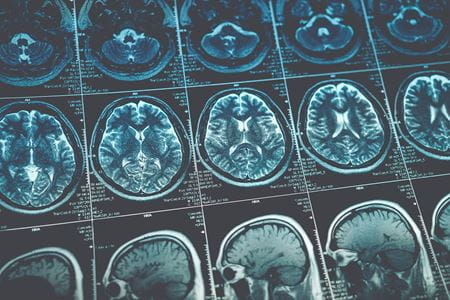INDIANAPOLIS — Administering anti-seizure medications to patients after they experience a mild or moderate traumatic brain injury (TBI) could reduce their risk of having a seizure in the first seven days post injury, according to a new study by Indiana University School of Medicine researchers recently published in JAMA Neurology.
The team of investigators conducted a meta-analysis of smaller observational studies of mild and moderate TBI, comparing rates of early post-traumatic seizures among patients who received treatment to prevent seizures with anti-seizure medication to those who didn't receive that treatment.
"Although seizures are much less likely in mild and moderate TBI, the risk reduction of post-traumatic seizures is still significant," said Matthew W. Pease, MD, assistant professor of neurological surgery at IU School of Medicine and first author of the paper. "We're able to show that people who get anti-seizure medicines are less likely to have seizures in the short term."
Traumatic brain injury is a major cause of death and disability worldwide. In the United States, there were 214,000 TBI-related hospitalizations in 2020 and more than 69,000 TBI-related deaths in 2021, according to the U.S. Centers for Disease Control and Prevention.
Post-traumatic seizures contribute to secondary brain damage after TBI and exacerbate the injury, leading to a longer hospital stay, worse functional outcomes and increased chance of death.
Pease said physicians often administer anti-seizure medication within the first seven days of injury to patients with severe TBI, leading to a less than 5% chance of having a seizure. But for patients with mild and moderate TBI, anti-seizure medications are not generally prescribed since the data hasn't shown whether the medications should be used as a preventative treatment.
This study combined data from multiple smaller studies of mild and moderate TBI adult patients with early post-traumatic seizures who received seizure prophylaxis in the first seven days. The meta-analysis showed that these types of medications had a small, yet significant effect on reducing seizures, Pease said.
An estimated 1 million people experience a mild TBI each year in North America. According to the study, 167 patients need to be treated to prevent one seizure.
"Those are thousands of people who are having seizures after mild TBI that you can prevent every single year," Pease said. "This research is setting a standard that there is evidence to support giving people anti-seizure medication."
Pease said by conducting a meta-analysis, this showed a more effective outcome of anti-seizure medication compared to the data found in each smaller study with fewer patients.
"When you combine the results across multiple studies, it increases the power of your study because you're not limited by having one institution or one particular study," Pease said. "You're looking at multiple studies that have multiple strengths and weaknesses and those strengths and weaknesses can balance each other out to leave you with a more powerful result."
Pease collaborated with IU School of Medicine faculty members and co-authors of the paper Flora Hammond, MD, chair of the Department of Physical Medicine and Rehabilitation, and Sergiu Abramovici, MD, assistant professor of clinical neurology.
"These findings support consideration of early seizure prevention among mild and moderate TBI patients at highest risk for seizure," Hammond said. "Further research of the costs and benefits of early seizure prevention after mild and moderate TBI is needed to refine treatment recommendations."
IU School of Medicine has multiple grants and clinical trials in TBI research, which includes the Traumatic Brain Injury Model Systems Center, the CARE Consortium and TRACK-TBI.
"TBI has such a large impact on the U.S. and the world," Pease said. "At IU, we're some of the leaders in figuring out better ways to treat TBI and limit the downstream consequences. We're spanning multiple disciplines to try to create the best treatment for patients."




